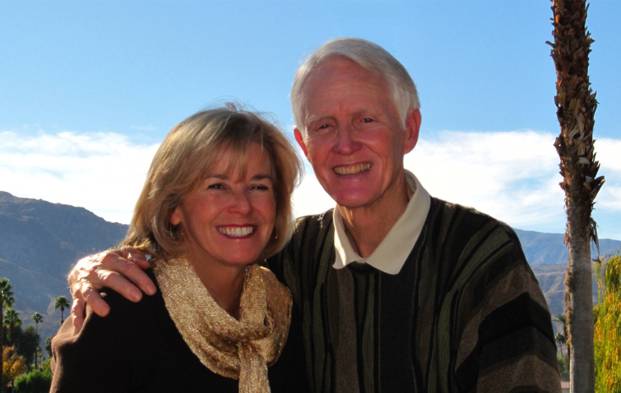
Coping with Grief and Loss
Any kind of significant loss can cause a grief reaction
Tom G. Stevens PhDPsychologist/Professor Emeritus, California State University, Long Beach
Send Feedback/Questions to: Tom.Stevens@csulb.edu
You Can Choose To Be Happy:
Site dedicated to enhancing human happiness, self-development, and success
Go to: Choose To Be Happy Checklist
SITE MAP: All free Self-help resources includes online book, You Can Choose To Be Happy, and SHAQ

|
|||
| search engine by freefind |
Grief, Loss, Death, and Dying
Index
InformationAdvice
Other Internet Links
Books-Media
CSULB Referrals
Dealing with the actual or potential loss of a loved one or the thought of one's own death can be one of the most devastating events in one's life. Yet it is something we all face and something that we must all overcome to find peace and happiness in life. Understanding the nature of the grief reaction and how to overcome it can be extremely helpful.
It is usually most helpful to explore all your emotions after a loss. In a normal grief reaction people feel very sad or even angry at the loss (to the degree the person was important to them). They may feel sad for the other person and for themselves or others whose lives will be missing important elements that the lost person provided. That person may have helped meet important needs for companionship, emotional support, fun, love, conversation, advice, financial support, etc. The loss of that person means that others must find new ways to meet these needs in their lives that are suddenly more empty. The sooner that those needs are met, the sooner the others can adjust to the loss. So planning and action to help meet these needs can help a great deal. Just (1) identifying the missing needs and (2) forming good plans for meeting these needs can be a very effective means for dealing with grief. (3)Effective action must eventually follow planning, or the cycle must be restarted.
People often feel anger at others or even God when they lose someone. These feelings will change only as they learn to accept the fact of the loss and the fact that they can find happiness through means other than having that person in their lives. It is always possible if one looks well enough.
=> If anger is a primary problem, go to the section for dealing with anger.
People often feel guilt about their own role in the loss. It is normal to question oneself and feel guilty even about things that might not have made a difference. Nevertheless, it is also important to "change that which one can change and accept that which one cannot (or will not) change." Sometimes guilt over ones role in a loss (such as in the breakup of a relationship) can be a useful impetus to change some aspect of oneself that is causing repeated problems in relationships. Working on oneself or counseling can help. Also, one must learn to accept and even forgive oneself or any others who might have been instrumental in the loss. Remember, that you must come to peace within yourself about the harm that you or someone else has caused to get over the grief and move on with your life. You are accepting and forgiving others--not just for them--but so that you can have peace within.
Having (or developing) a meaningful and constructive philosophy of life or spiritual life can be very helpful to solving the deeper issues that people feel anxiety and despair about. Death is usually one of our greatest fears. If you have not come to terms with the thought of your own or others' death, then you will be especially disturbed by a death because it will be more threatening to you personally. Other underlying fears might be fear of being alone, poor, infirm, or rejected.
=>For more help on dealing with these underlying fears, go to http://home.csulb.edu/~tstevens/h43dark.htm
In addition to the above suggestions, be sure to take especially good care of yourself and your own needs. Eat well, get lots of exercise, seek positive support from others, read inspirational or self-help materials, get spiritual help and support, spend time in activities or environments that are calming, fun, and helpful. One misguided idea many people have is that if they love someone, they will feel miserable and withdraw from all forms of normal life during a long grieving period. Such self-deprivation may only prolong and stamp in the personal misery. It doesn't help the dead or missing person one bit, it only adds to your own misery. If the person really loved you, he/she would want you to recover as soon as possible, go on with your normal life as soon as possible, and be as happy as possible from then on.
Seeking spiritual help from a wise counsel of your own religious or general belief persuasion can be very helpful; so can good professional counseling from someone who is good at dealing with grief. Also, you may find a grief support group available in the community at a church, HMO, college, or counseling center.
See our help pages on overcoming depression, finding happiness, finding
meaning, or other related topics, and general reference sites.
=> For most people, a signiticant part of
ddealing with grief is dealing with depression; go
to: www.csulb.edu/~tstevens/depression.htm.
***Growth House, Inc.
Good site to start with issues related to grief
and dying.
http://www.growthhouse.org/
***Counseling For Loss
Many resources listed.
http://www.counselingforloss.com/
***Virtual Pamphlet Collection of the University of Chicago--SEE
GRIEF and DEPRESSION
Free online pamphlets about relationships and many other topics written by
psychologists and other counselors from University Counseling Centers across
U.S.A.
http://counseling.uchicago.edu/vpc
Dr Tom G Stevens' BOOK: You Can Choose To Be Happy:
"Rise Above" Anxiety, Anger, and Depression
(with Research Results)
Go to Free BOOK DOWNLOAD
pdf
Go to BOOK CONTENTS
Go to RESEARCH SUMMARY CHAPTER
SELF-HELP INFORMATION + SITE MAP:
FREE SELF-HELP MATERIALS on this web site (click here to see list)
Free SHAQ QUESTIONNAIRE: Go to:
Success and Happiness Attributes Questionnaire (SHAQ)
to assess yourself on many factors--including your
HQ-Happiness Quotient
ORDERING the BOOK:
How to ORDER You Can Choose To Be Happy
Web site created and maintained by: Tom G. Stevens PhD,
Psychologist/Professor Emeritus, California State University, Long
Beach Counseling and Psychological Services
URL of this web site:
http://home.csulb.edu/~tstevens/index.html
HOME PAGE: Return to Dr Tom Stevens' Home Page Copyright 2025; Tom G. Stevens PhD